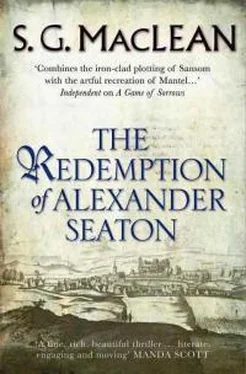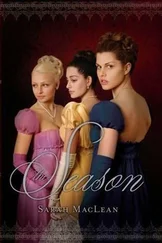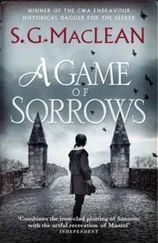The town bell had just tolled seven when I passed under the archway at the side of the apothecary’s shop. The rhythmic chanting of the psalms and the tentacled aroma of roasting meats guided my steps. It was a mild evening, and the sun had not yet sunk beyond the mountains of the west. The sea was peaceful. Charles’s voice seemed to guide the waves as they came surely to the shore, the people in unison taking up the line behind him, their voices rumbling away like the pebbles as the waves rolled them back to the sea. Many of the mourners had spilled out into the courtyard – although the women remained yet in the house. Unseen, as I thought, on my arrival, I scanned the faces of the people gathered there, some shifting slowly from one stance to another, some talking in low voices to their neighbours. I marvelled, but was in truth little surprised, at the hypocrisy of my townsmen – how many of them had gathered together not three hundred yards from here, but two nights ago, and watched the body burn of the girl they now mourned? As I began to pass amongst them, I noticed how few of any note were absent from this gathering. The guilds were there, those who were not locked away awaiting justice, their deans wearing the regalia of their office in honour of their fellow guildsman, the apothecary. Baxters, candlemakers, coopers, fleshers, shoemakers, dyers, weavers, hammermen. How resplendent, how strong had I seen my own father on many a night such as this. How my mother had hated the public appropriation of such private grief. She had not understood.
There was the baillie, watching. I was not greatly surprised to see him: despite his oft-rehearsed condemnation of such ‘popery’ as the lykewake, he was a man who liked to know his enemy. And there, not amongst the general throng, but alone in the shadows of the doorway to the apothecary’s house, was the provost. My eye met his and he gave me the briefest of nods before retreating further back into the shadows, where a white wraith flitted behind him; Geleis Guild also had come to mourn her friend and helper. As I turned my gaze from the doorway I caught a glimpse, from the corner of my eye, of Jaffray. He was deep in conference with Thomas Stewart, and had evidently not seen me. I took a step towards them and the doctor looked up in my direction. I had not seen him since he had pleaded with me not to go to Darkwater. He raised a hand to acknowledge me, but the notary avoided my eye. Stung, I turned back towards the place the music was coming from.
My minister’s garb cutting a path for me through my astonished neighbours, I made my way eventually towards the circle at the front of the throng, nearest to where the song schoolmaster and his scholars stood. Charles directed the boys in the old way, standing before them behind a makeshift lectern, turning the pages of the choirbook with one hand as he directed the boys behind him with the other. Away from the inn, away from Jaffray’s, away from the kirk, he was a man transformed. The cares of his world and the confines of his duties lifted from him, he was at liberty, so seldom granted him, to enjoy fully and to offer to us his God-given gifts. The psalm he now took up was not, as the others had been, a monotone, stripped of all decoration and ornamentation, but something worthy of the gifts and training of a true musician. Voices of master and boys rose in magnificent polyphony, urging the Lord, for Marion Arbuthnott, to ‘judge and avenge my cause’.
Baillie Buchan, whom I discovered a few feet away from me, did not move throughout the rendition of the whole piece, yet his face hardened in disapproval with every new proof of the virtuosity of my friend. He never once took his eyes from Charles though, and it was only as master and boys then set themselves in reports on the eighteenth psalm that he seemed to notice me. He said nothing, but moved slowly closer to me, evidently set on the guarding of either Charles or myself from escape.
In a moment he was at my shoulder. I was emboldened by the gradual dying of the light. ‘The psalm is not to your taste, baillie?’ I asked.
‘The psalm is to my taste,’ he said. ‘The words of King David, cried out to our Lord, assured in the righteousness of his cause in a sinful world. But this playing upon it, this decoration and ostentation, born of the vanity of men, turns my stomach. What need has the psalmist of such perversions?’
‘Surely, baillie, our music master’s voice is a gift from God?’
He turned on me a look of frozen contempt for my words. ‘Do you not recall the words of John Knox? Or is he out of favour with the great Episcopalians of the King’s College?’ There was the disdain in his voice of a man who made no compromise.
‘I am no stranger to the works of John Knox,’ I replied, ‘and neither were my masters.’ And indeed I recalled the words of the great Reformer, and their exposition as my classmates and I had debated the place of music in the worship of God. For the baillie, there was no debate.
He spoke quietly. ‘He knew of the snares of the world waiting on all men, and warned against such as these. The schoolmaster’s gifts should be applied to the edification of the people, not to the parading of his own vanity.’ The vehemence of his words was almost beyond his strength to muster, and the baillie was overcome by the now familiar retching cough.
A spit with a hog roasting on it turned in one corner, near to the apothecary’s well. Some ragged urchins were already gathering near it, ready to risk the wrath of the cook for the chance of a hot meal. I was hungry, and would gladly have sat down and eaten something myself, for I felt weak from hunger and fatigue. It was not time for eating though; the long trestle tables laid out in the courtyard were as yet empty of the delights that the women of Arbuthnott’s kin had been preparing all day. The time of solemnity had not yet passed – that of gluttony and excess was still to come. My fine suit of English wool with its long cloak and collar were not sufficient to take the damp and cold from my bones. I began to feel shivery, and searched out a place beside the fire. Gladly would I have returned to my bed, for I had little time for lykewakes and the superstitions they recalled, but I felt impelled to stay and see the night through.
The psalm the scholars were singing was finally brought to its dolorous end, and, with scarcely enough pause for breath, a new sound filled the air, a sweet and melancholic melody I knew well. One of the older boys had taken up his flute, while another played on the rebec, his bow calling a plaintive tune across the strings, and Charles began to sing out, no psalm now, but a mourning lover’s air – ‘I wish I was where Helen lies’. The women had come out of the house now. Some still stood on the backstairs, while others moved softly amongst the guests in the courtyard. And then, as from another place, the timeless notes of a clarsach joined with the flute and the rebec, matched to Charles’s own voice. I turned my eyes to the source of the sound, for I knew Charles was no harpist. There, on a stool a little behind the musicians’ dais, sat Ishbel, the doctor’s girl, her fingers gently caressing the strings of the clarsach, as those of her people had done for centuries before. The instrument spoke the agony of lost love, of a life and of dreams departed, and for a few moments all other noise ceased. Charles himself fell silent. As the notes followed one another on the air, and the song came at last to its end, I saw that many in the crowd were now weeping. Marion Arbuthnott’s moment had come. The doctor moved towards the girl, pride and love glowing in him. At the top of the forestairs, engulfed in her desolation, stood Marion’s mother, her head buried in the shoulder of Mistress Youngson, whose eyes looked out on her own memories. Most of all though, it was the baillie that I noticed. He too was looking out, far from the place and time he now stood in, to an image of something long lost, long gone. I had never before seen such humanity in his face. Charles did not move, but watched Ishbel for many moments. His lips parted slightly and gradually came together again. A veil had been lifted from his eyes.
Читать дальше












